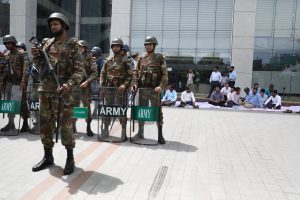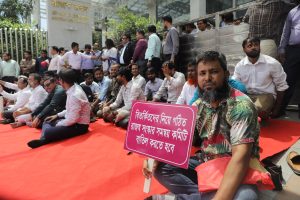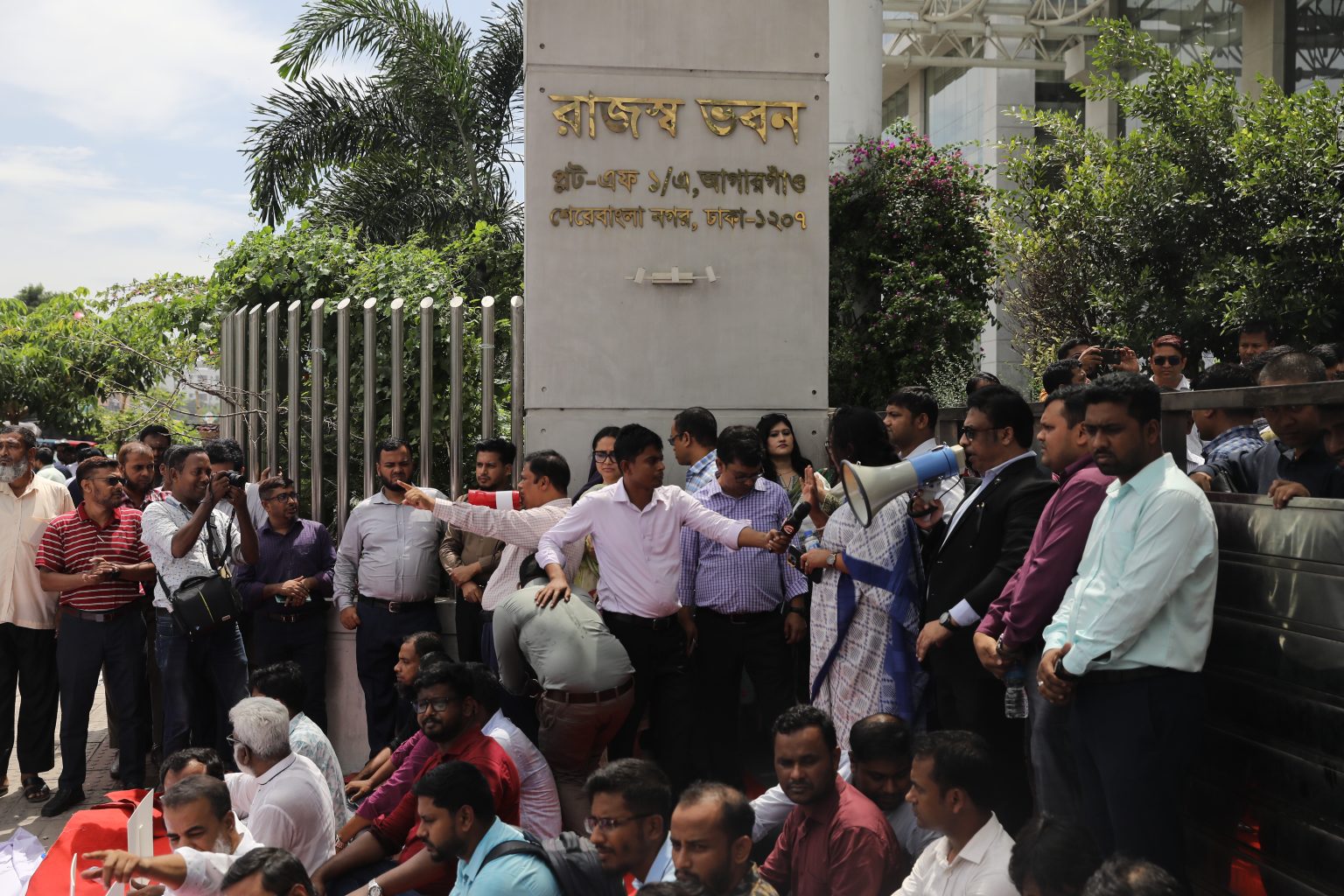Rejecting the finance adviser’s call for a dialogue, the National Board of Revenue (NBR) officials continued their half day pen strike and demonstration till Thursday evening.
The fourth turbulent day at the revenue services office ended with a larger concern – complete shutdown of services other than that to the international passengers, as the “NBR Reform Unity Council” stick to their demand for removal of the board’s current chairman.
The council also called all its fellows across the country to join the greater “March to NBR” alongside the complete shutdown from Saturday, June 28, if demands were unmet. They also urged for the chief adviser to intervene.
Finance Adviser Dr Salehuddin Ahmed was holding a meeting with the BCS (Tax) and BCS (Customs and Excise) cadres’ representatives in the evening on Thursday to discuss the prevailing situation surrounding the NBR following its expectation for a reform through dialogue.

Yet, it remained unclear which side will bow down, adding to the anxiety of the business community already dealing with multidimensional problems.
After the two-and-a-half hour meeting on Thursday evening, the financial adviser said that further discussions with revenue officials will take place next week.
In response to journalists asking what measures would be taken if a shutdown were initiated before that, he urged officials to withdraw their shutdown plan.
At the same press briefing, the NBR Chairman Abdur Rahman Khan expressed hope that a solution would be reached within the same night.
Sixteen of the seventeen members of the revenue board took part in the dialogue.
The four days of several-hours pen strike led to sufferings of service recipients as they had to sacrifice their own schedule to get necessary documents signed at revenue offices across Bangladesh, be it in customs, tax, or VAT offices.
“A complete shutdown of services will be the worst thing we can expect. It should end soon; businesses have many other problems to solve,” said Rizwan Rahman, a former president of the Dhaka Chamber of Commerce and Industry (DCCI).

Also, the country at the bottom of the table for tax to GDP ratio – at around 7% – cannot afford revenue losses.
NBR Chairman Abdur Rahman Khan, in a discussion with economic reporters and some enterers, accepted that disrupted services in his departments are hurting revenue collection to some extent.
He did not elaborate the extent to which this was the case. However, the NBR’s daily average revenue collection is more than a Tk1,000 crore. The ripple effects of the disruptions sum much bigger as delay in the crucial services even translate into business losses, alongside hassles.
NBR Reform Unity Council members and their fellows across the country are claiming no impact in revenue collection, however, as they sign files over the other half of the working day.
Businessmen engaged in export imports are facing the worst impacts of the strikes, their fears intensifying in the midst of a threat of a complete shutdown.
The NBR officials began their strike last month following the May 12 ordinance dissolving NBR and the Internal Resources Division of the Ministry of Finance to separate revenue policy and revenue services management.
Having services disrupted during the draft preparation for the national budget, the government on May 26 walked back and announced modification of the ordinance by July 31 through dialogues and recommendations by reform committee.
Demanding their representation in the committee alongside withdrawal of the recent “punitive” transfer orders, the employees’ council resumed their strikes earlier this week.


